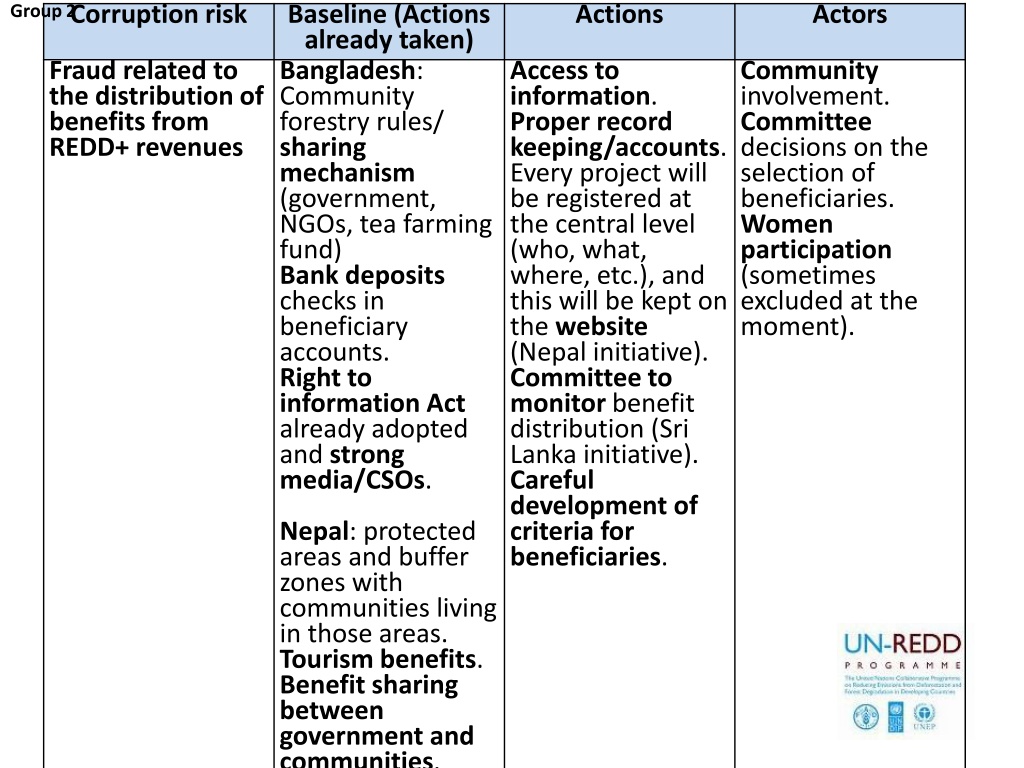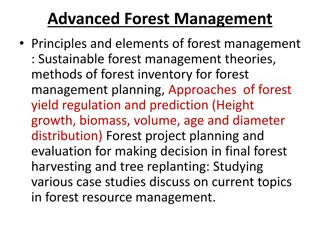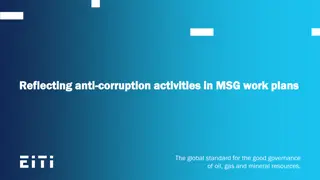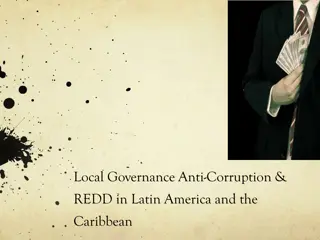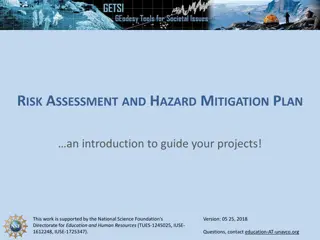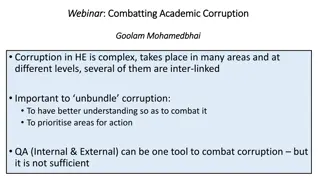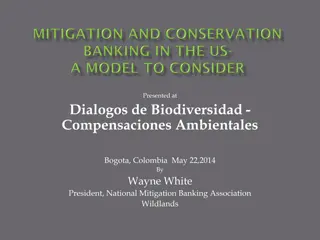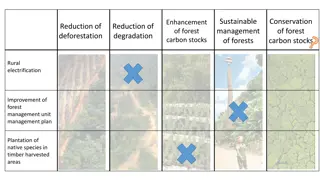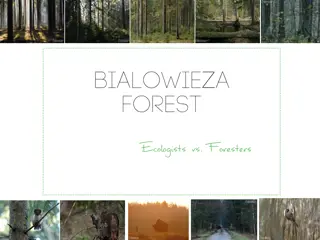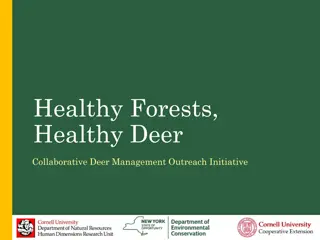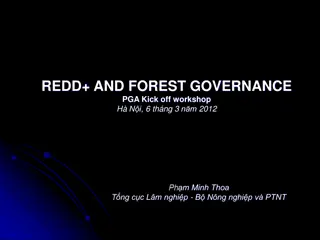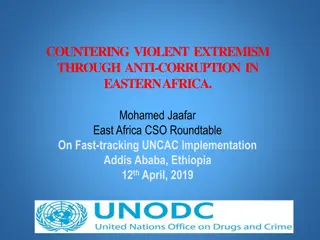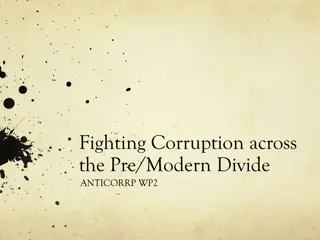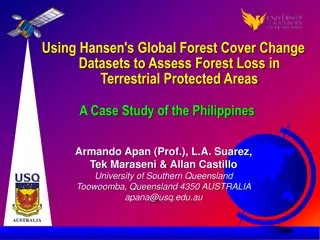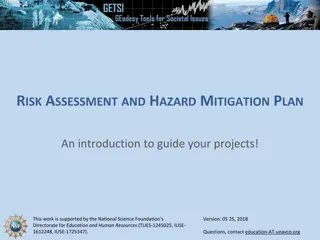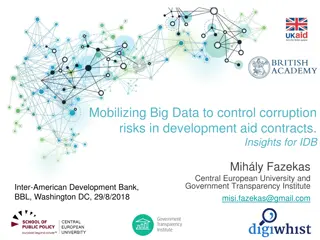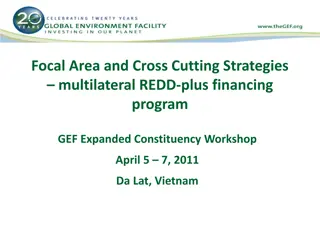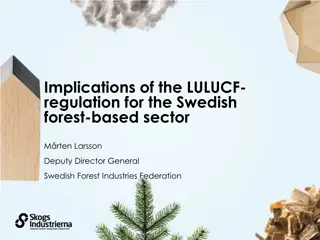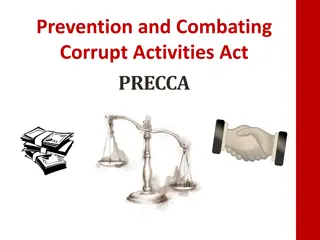Corruption Risk Mitigation Strategies in Forest Management Projects
Various corruption risk mitigation actions have been implemented in forest management projects in Bangladesh, Nepal, and Sri Lanka. These actions include community involvement, transparency mechanisms, stakeholder engagement, and legal awareness programs to prevent fraud and elite capture. Strategies such as proper record-keeping, benefit sharing agreements, and strong monitoring committees are emphasized to address corruption risks effectively.
Download Presentation

Please find below an Image/Link to download the presentation.
The content on the website is provided AS IS for your information and personal use only. It may not be sold, licensed, or shared on other websites without obtaining consent from the author. Download presentation by click this link. If you encounter any issues during the download, it is possible that the publisher has removed the file from their server.
E N D
Presentation Transcript
Corruption risk Group 2 Baseline (Actions already taken) Bangladesh: Community forestry rules/ sharing mechanism (government, NGOs, tea farming fund) Bank deposits checks in beneficiary accounts. Right to information Act already adopted and strong media/CSOs. Actions Actors Fraud related to the distribution of benefits from REDD+ revenues Access to information. Proper record keeping/accounts. Every project will be registered at the central level (who, what, where, etc.), and this will be kept on the website (Nepal initiative). Committee to monitor benefit distribution (Sri Lanka initiative). Careful development of criteria for beneficiaries. Community involvement. Committee decisions on the selection of beneficiaries. Women participation (sometimes excluded at the moment). Nepal: protected areas and buffer zones with communities living in those areas. Tourism benefits. Benefit sharing between government and communities.
Group 1 Corruption risk Baseline (Actions already taken) Actions Actors Stakeholder involvement in the design of the process. Carbon trust fund. Sri Lanka: Almost no community forest management. Agreements on benefits sharing. REDD national programme document being developed. Now considering 100% benefits.
Group 1 Corruption risk Baseline (Actions already taken) Bangladesh: Chittagong hill tract (Unclassed State Forests are managed by Hill Council and Local administration. (Customary rights are controversial?) District hill councils now have authority. Government land survey. Hilly grasslands outside Chittagong Hill individual/compan ies on 40 years lease. Private sector influence. 80% cases in the legal system are land issues Actions Actors Powerful elites exert link carbon rights to State ownership of forests thus excluding customary tenure Training judges/courts on land tenure, especially on REDD cases. Look into existing laws and protection of customary rights. Law should address elite capture within IP groups. Courts. Indigenous people. Stakeholder involvement in the design. Careful: Elite capture within IP groups.
Group 1 Corruption risk Baseline (Actions already taken) Actions Actors Nepal: State cannot allocate forest for some purpose without local community consent by law. Sri Lanka: No customary land. Shifting cultivation. Legally protected versus non- protected areas. Elite capture within IP groups.
Group 1 Corruption risk Baseline (Actions already taken) Actions Actors Undue influence and bribery to ignore breaches of REDD+ regulations No REDD+ Regulations yet, however: Bangladesh: People can invest in forest land. MPs interested in investing money. Government: rich people cannot invest in forest land. Poor people only (75% of benefits/25% for government) Joint monitoring system (donor/communit y) Social/public audit. Empower the judiciary/administ rative bodies. Community/NGO capacity development. Access to justice if anything happens that is wrong. Creating legal awareness (including investors). Law enforcement. All stakeholders (government, NGOs, etc.) Policy makers Leakage is a risk. Nepal: Linked to Forest law.
